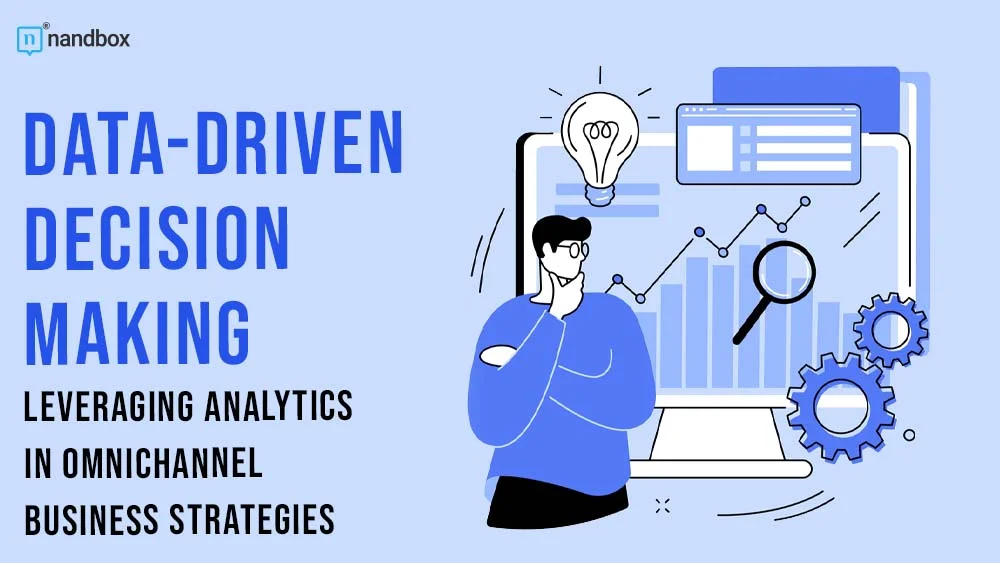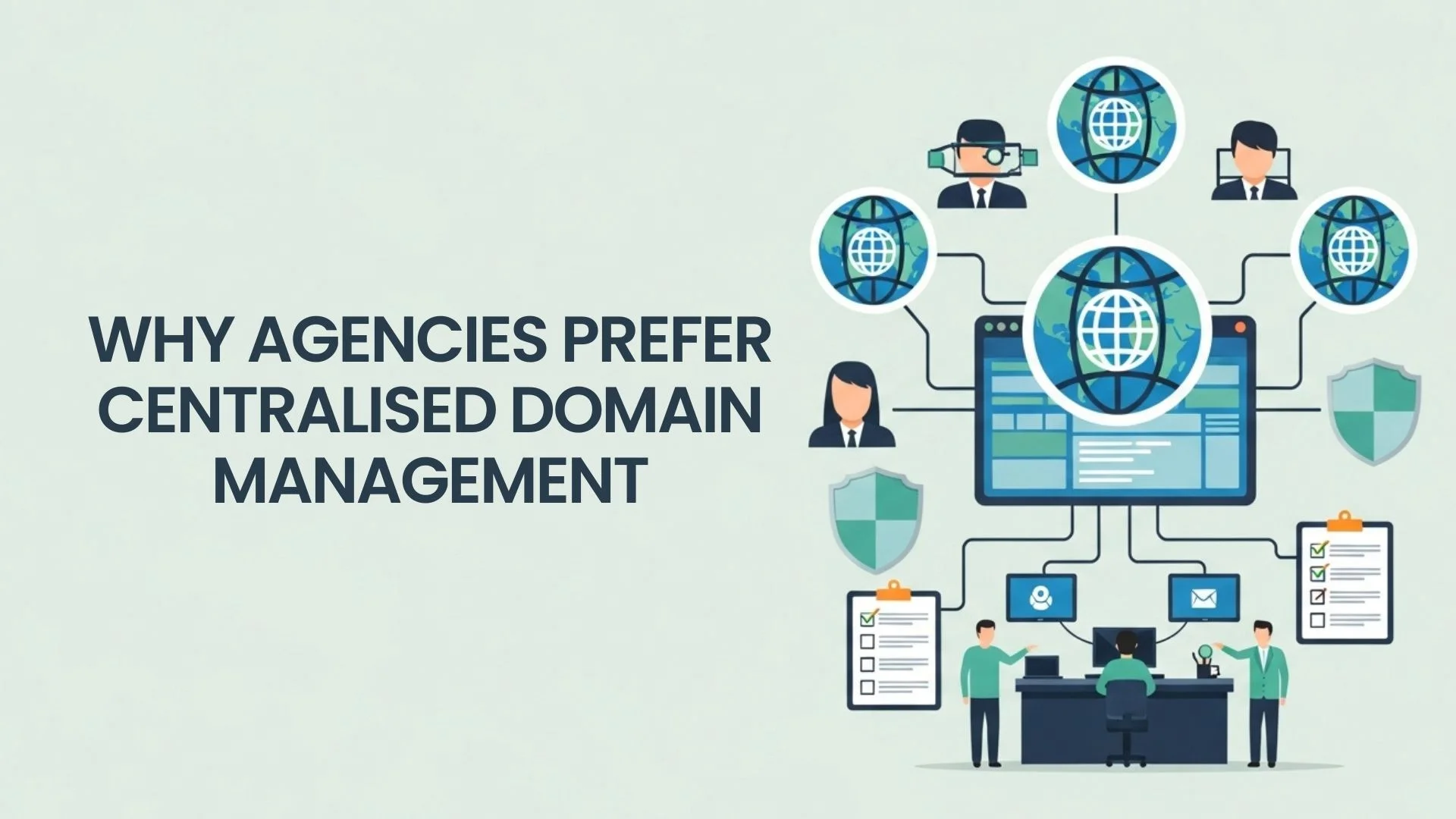Alt Text: Data-Driven Decision Making: Leveraging Analytics in Omnichannel Business Strategies.
Collecting, analyzing, and deriving useful insights from data is becoming a necessity rather than a competitive advantage in this data-driven market landscape. The way consumers engage with companies has changed because of the convergence of digital and physical channels. That is why organizations are leveraging data analytics and data-driven decision-making. The data-sourced insights can be used to improve consumer experiences and inform strategic decision-making. Let’s walk through every step of setting up analytics in omnichannel business strategies.
The Role of Data in Omnichannel Business
When it comes to omnichannel businesses, data is crucial for creating frictionless experiences for customers across all channels. To grasp omnichannel marketing, one must be able to see how different online and offline touchpoints are interdependent on one another.
Companies face a lot of obstacles when trying to implement omnichannel strategies. Some of these obstacles include data silos, inconsistent messaging, and broken customer journeys. The key to overcoming these obstacles is data, which may shed light on consumer habits, tastes, and tendencies.
Businesses can optimize their omnichannel strategy, personalize interactions, and unify customer data from diverse sources with extensive data analysis. In the end, businesses can get an advantage in today’s competitive market by using data to create consistent experiences for their customers, which increases loyalty and leads to long-term growth.
Benefits of Data-Driven Business Decisions
Data-driven business decisions provide several benefits that can greatly influence business success. Here are some significant benefits of data-driven business decisions. They are:
1. Increased Accountability
Making decisions based on data promotes responsibility. According to Paul Rubenstein, CHRO at Visier, assists in changing the way organizations pursue accountability in DEI, revenue, and changes in the workforce when everybody can see how their individual decisions connect to a strategy. Then, you’re making a connection with the overarching business objectives.
However, achieving this harmonic result necessitates redistributing data ownership, which is not always a simple process. Leaders and managers at all levels can rectify which teams are performing well and which ones require coaching when everyone has access to people’s data. This allows them to make necessary adjustments before issues worsen.
2. Better Efficiency
Success happens more quickly when all leaders have access to the information they need to make informed decisions. It is essential for any organization to have the right people with the right abilities and skills to do the work, as well as a process to obtain the information the workforce needs to complete the work and achieve desired outcomes.
3. Alignment on Company-Wide Goals
Data becomes more than just a singular point of information when it is accessible to all. Data-driven decision-making promotes alignment on company-wide goals. It unifies information from various sources to offer a thorough understanding of the business, coordinating teams and departments with the overarching business plan.
For instance, it will be more beneficial for each department to understand how they fit in and whether the business is compensating employees fairly depending on their demographics if your company’s purpose is to increase diversity, equity, and inclusion.
4. A Sense of Ownership at Every Level
Giving managers at all levels access to people, and analytics tools promotes trust in the data while fostering openness and accountability by bringing everyone in the company closer to a single point of truth. Data about skill availability, likelihood of burnout, and onboarding procedures will allow high-performing teams to share best practices and inform underperforming teams when they need to improve.
5. Transparency
The foundation of trust in business is transparency between an organization and its investors, clients, shareholders and staff. According to Providence’s Vice President of Workforce Strategy & Analytics, Mark Smith, people insights are among the most important measures of an organization’s general health.
Implementing Analytics in Omnichannel Business Strategies
By giving organizations the knowledge they need to personalize customer experiences, boost engagement, and boost conversion rates, data analytics plays a critical role in improving omnichannel strategy. In order to successfully complete analytics implementation into omnichannel initiatives, companies can take the following important actions:
- Consolidate Data: Getting a complete picture of client interactions requires centralizing data from several sources such as databases, APIs, XML, and JSON. For XML and JSON, this often involves conversion into a database to ensure seamless data integration and analysis. In order to develop unified customer profiles in real-time, first-party data from many touchpoints can be aggregated with the aid of customer data platforms (CDPs) such as Twilio Segment.
- Utilize Data Analytics Tools: Using data analytics tools is essential when looking into particular areas of the consumer experience. For example, Qualtrics and other sentiment analysis tools can derive useful insights from the examination of client feedback on social networking platforms, review sites and customer care conversations.
- Implement ETL Tools: By extracting data from many sources, translating it into an organized format, and loading it into a destination such as a data warehouse, ETL (Extract, Transform, Load) tools play a crucial role in data integration. Thanks to this method, the data is normalized and prepared for analysis.
Through adherence to these guidelines and utilization of appropriate instruments, enterprises can construct a sturdy data framework that facilitates triumphant omnichannel customization and decision-making procedures. With the use of business intelligence integration, businesses may get over issues with inconsistent data sources, a lack of real-time information, and technological constraints, which eventually result in omnichannel strategies that are more successful.
Conclusion
The incorporation of data analytics and insights is crucial for directing effective omnichannel tactics. Businesses can have a thorough grasp of consumer habits, interests, and interactions across several channels by leveraging data analytics. This puts businesses in a better position to develop a smooth, customized consumer experience that increases brand loyalty.
Data analytics makes it possible to make decisions in real time, improve inventory control, and guarantee effective supply chain operations. It is critical to get the ideal blend of strategy optimization, technology, and exceptional knowledge if you are a business aiming to advance in developing your omnichannel e-commerce solutions.
If you’re a retailer or business aiming to advance your omnichannel e-commerce solutions, it’s crucial to blend the right strategy, technology, and execution expertise. With extensive experience helping businesses scale their digital operations, Mayura Consultancy Services is equipped to support your omnichannel e-commerce growth journey.
FAQs
1. How can data-driven decision-making benefit my omnichannel business strategy?
Your omnichannel approach can benefit from data-driven decision-making since it can help with individualized customer experiences, operational efficiency, accountability and proactive decision-making.
2. Which tools and technologies are recommended for implementing data analytics in omnichannel strategies?
For omnichannel success, such as data consolidation, customer interaction analysis, and actionable insight extraction, solutions such as Customer Data Platforms (CDPs), sentiment analysis tools, ETL (Extract, Transform, Load) tools, and advanced analytics platforms might be helpful.
3. How can businesses make sure of data security and compliance while leveraging data analytics in omnichannel strategies?
Businesses can prioritize data security by putting in place strong encryption methods, access controls, frequent audits, and compliance with pertinent data protection laws like the CCPA or GDPR to protect client information and uphold confidence.





